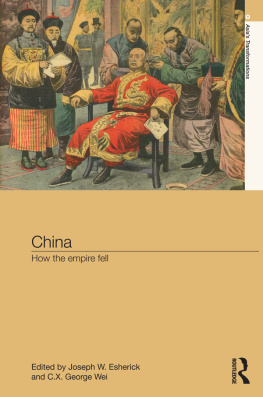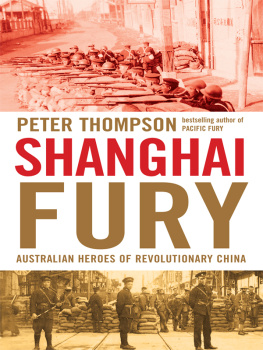ESTHER CHEO YING
Black Country to Red China
One girls story from war-torn England to Revolutionary China
VINTAGE BOOKS
London
Contents
This eBook is copyright material and must not be copied, reproduced, transferred, distributed, leased, licensed or publicly performed or used in any way except as specifically permitted in writing by the publishers, as allowed under the terms and conditions under which it was purchased or as strictly permitted by applicable copyright law. Any unauthorised distribution or use of this text may be a direct infringement of the authors and publishers rights and those responsible may be liable in law accordingly.
Version 1.0
Epub ISBN 9781409077831
www.randomhouse.co.uk
Published by Vintage 2009
2 4 6 8 10 9 7 5 3 1
Copyright Esther Samson 1980
Esther Samson has asserted her right under the Copyright, Designs and Patents Act 1988 to be identified as the author of this work
This book is sold subject to the condition that it shall not, by way of trade or otherwise, be lent, resold, hired out, or otherwise circulated without the publishers prior consent in any form of binding or cover other than that in which it is published and without a similar condition, including this condition, being imposed on the subsequent purchaser
First published in Great Britain in 1980 by Hutchinson
Vintage
Random House, 20 Vauxhall Bridge Road,
London SW1V 2SA
www.vintage-books.co.uk
Addresses for companies within The Random House Group Limited can be found at: www.randomhouse.co.uk/offices.htm
The Random House Group Limited Reg. No. 954009
A CIP catalogue record for this book is available from the British Library
ISBN 9780099536031
The Random House Group Limited supports The Forest Stewardship Council (FSC), the leading international forest certification organisation. All our titles that are printed on Greenpeace approved FSC certified paper carry the FSC logo. Our paper procurement policy can be found at: www.rbooks.co.uk/environment

Printed and bound in Great Britain by
CPI Cox & Wyman, Reading, RG1 8EX
About the Author
Esther Cheo Ying was born in Shanghai in 1932. From the age of six she spent her childhood in England but returned to China at seventeen. In the Chinese Peoples Liberation Army, then in the New China News Agency and on Peking Radio, she saw the New China in the making from the inside.
Eleven years later she returned to Britain and became a teacher. For many years until retirement she was head of a primary school in the West Country. She and her journalist husband then moved back to the outskirts of London to be near their children and grandchildren. Her hobbies include sculpture, writing and walking and her daughter Polly is a successful author.
Illustrations
Preface
When I wrote this book, the Cultural Revolution was not long past. So I restrained myself in part. I did not want to reopen old scars or unwittingly cause harm to people who had already suffered so much. The incidents in the book are true, but in some cases I have changed names, places and circumstances. What I tell is as I saw it and felt it. I have exercised restraint in consideration of others feelings, but I realize that in recalling the events of my life I am likely to upset some friends and relations East and West. I regret that I cannot tell my story without some people feeling hurt.
I prefaced my story when it was published in 1980 with the following words:
The events of this book took place thirty years ago when, like so many rebels of the postwar years, I searched and thought there was a solution to all social problems.
I dedicate the book to my foster-mother Auntie Dash, who helped to form my mind so that it could question the eastern and western philosophies and gave me the courage to make the right decisions and stand by them.
Now seven years on, I have just returned from my first visit to China nearly three decades after the events recounted here. I met again many old friends and comrades and realize that to complete the picture my dedication should include them. Not by individual names that would be invidious. They all suffered severely during the Cultural Revolution and the run-up to it but their attitude to those bitter years is mainly philosophical. One of them, himself now seriously incapacitated as a result of his treatment by the Red Guards, even felt able to say: At least it cleared the air.
He added: Write another book now that you have come back and seen how China has changed.
I intend to do that. But meanwhile it was cheering to find that so many of the judgements I made in this book are now widely shared in China. You were right, said some of those who thirty years ago were foremost in castigating my political mistakes. Of course it was pleasing to receive acknowledgements that I was right even if I was right at the wrong time. But my colleagues and friends of those years stayed on. Those people, some now dead, battled on to bring closer the ideals which had first taken me to China. I learned much from them and despite them. So in part this book should be dedicated to them.
As for my Chinese family, that is another story. It was only through a chance remark by a visitor to London from Peking three years ago that I learned that my father the other main reason for my original return to China had died in 1961.
It took until April this year to find and meet my half-sister and four half-brothers.
Once I had left China when they were youngsters, the limited protection that my status in Peking may have afforded them was gone. My sister achieved her ambition to become a doctor, but the boys were prevented from entering university and under the political suppression which culminated in that nightmare decade of the Red Guards they were forced for years to labour on the land in harsh parts of China thousands of miles remote from their home city, Shanghai.
Theirs is a story of great suffering and bitterness which did not end until years after the death of Mao Tse-tung and the downfall of his wife.
Twelve years after Fathers death, a Shanghai court finally cleared him of all the counter-revolutionary charges for which he had been sentenced. When I learned this, I cried. All the suffering heaped on his Shanghai family and incidentally on me based on trumped-up charges. All the hardships undergone by my sister and brothers based on simple injustice for unlike most of my Peking friends and colleagues, my Shanghai family were non-political, not cadres, just wanting a normal, straightforward life. Faced with their pent up feelings, it is hard to stay objective and see China for what it has become a great nation of wonderfully resilient people.
May their optimism for the future be justified and may my fathers tortured soul at last rest in peace.
Esther Cheo Ying
Devon
June 1987
1
Return to China
I stepped down the gang-plank in Tientsin Harbour, dirty and dishevelled, and managed to place myself in the middle of a group of young Chinese students to pass the Communist guards as they cursorily glanced at the people moving along with their bundles.
It was February 1949. I was seventeen. I had left the postwar gloom and depression of England and the English half of my family to return to China, which I had not seen since I was six years old. The world was just becoming aware of the advances of the Chinese Red Army. Tientsin, one of Chinas main northern ports, had been taken. I had been in Hongkong for several weeks waiting for Tientsin to be liberated by the Red Army so that I could smuggle up by sea to join them. Central and South China were still in the hands of the Nationalists, and somewhere in Shanghai lived my Chinese father.

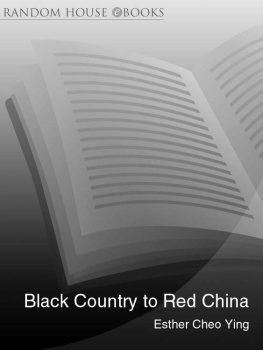
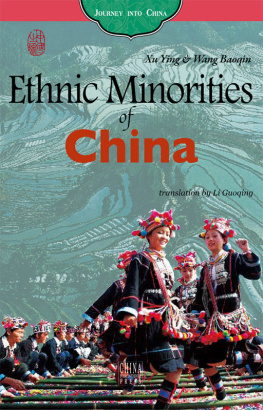
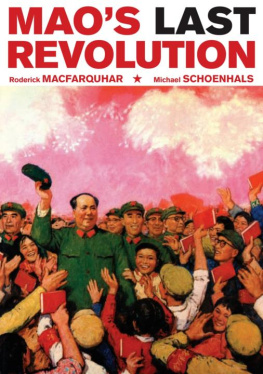

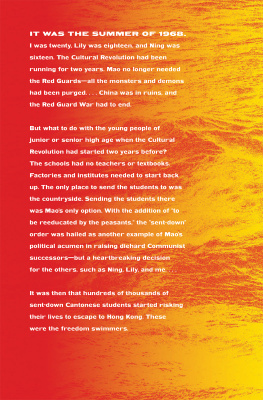
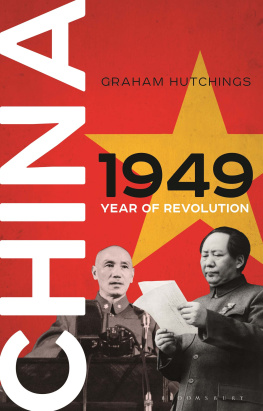
![Flower - China: [the essential guide to customs & culture]](/uploads/posts/book/200771/thumbs/flower-china-the-essential-guide-to-customs.jpg)
